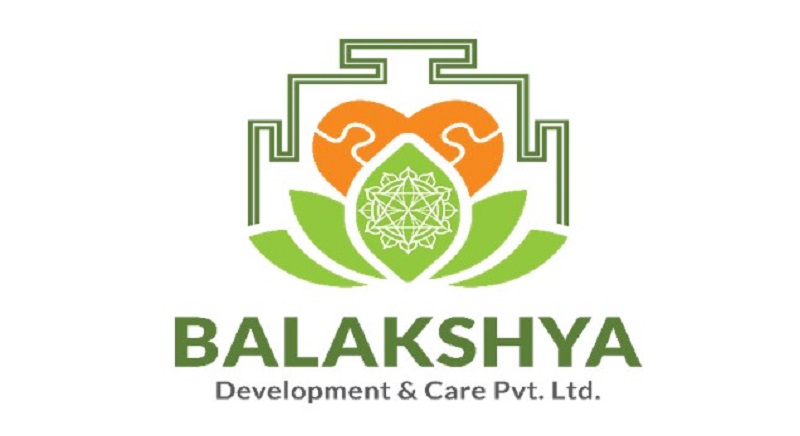Balakshya Development and Care Conducts One-Day Training on Neurodiversity Support for Children
1st September 2025, Kathmandu
Balakshya Development and Care has taken a significant step toward fostering an inclusive society in Nepal by successfully holding a one-day training program for caregivers. Titled “Caregivers as Therapists: Nurturing Neurodiversity at Home and School,” the event was led by behavioral therapist Ganga Shakya.
One-Day Training on Neurodiversity Support
The program’s core objective was to equip parents, teachers, and other caregivers with the essential skills and practical strategies needed to support the daily lives and developmental progress of children with diverse abilities. This initiative addresses a critical gap in a society where conversations around neurodiversity are still in their early stages.
Empowering Caregivers with Essential Skills
The training was meticulously designed to go beyond theoretical knowledge and provide participants with actionable techniques they could immediately apply in real-life settings. The central focus was on creating a nurturing and inclusive environment for neurodiverse children, both at home and in school. Participants gained valuable skills in several key areas:
Encouraging positive behavior: They learned strategies to manage stress, reduce behavioral challenges, and establish routines that provide a sense of security and predictability for children.
Building inclusive environments: The training offered guidance on how to adapt physical spaces and social interactions to make them more accommodating and welcoming for neurodiverse individuals.
Strengthening emotional bonds: Caregivers were taught how to forge stronger emotional connections, which is fundamental to a child’s overall well-being and sense of security.
Supporting developmental milestones: The program provided evidence-based approaches to help children reach their developmental milestones, from communication skills to daily life activities.
As behavioral therapist Ganga Shakya highlighted, the active participation of caregivers is a game-changer. She noted, “When caregivers actively participate in therapy, we see remarkable improvements in the daily lives of children.” This statement underscores the program’s foundational belief that consistent, everyday caregiving is just as important as formal clinical therapy.
A Community of Shared Purpose
One of the most valuable aspects of the training was the diverse participation it attracted. The audience included parents, teachers, and various other professionals and stakeholders committed to child development. This interactive environment allowed attendees to share their personal experiences, discuss the unique challenges they face, and collaboratively practice new strategies. The rich exchange of ideas and perspectives not only enriched the training but also fostered a sense of community and mutual support among participants. This diversity of attendees signals a growing awareness and recognition of neurodiversity in Nepal, a topic that has historically received limited attention. The event served as a catalyst for building a network of informed and empowered caregivers and educators who can continue to support each other.
Balakshya’s Vision for an Inclusive Society
The training program is a clear reflection of Balakshya Development and Care’s long-term commitment to building a more inclusive society in Nepal. Narottam Dhakal, the organization’s Co-Founder, emphasized this point, stating, “We will continue to organize such programs in the future so that every child can flourish in an environment that values diversity and inclusion.” Dhakal stressed that empowering caregivers is not just a short-term solution but a long-term investment in the potential of neurodiverse children. By providing practical knowledge and skills, the organization is helping to ensure that these children have the opportunity to thrive academically, socially, and emotionally, rather than simply being cared for.
The Critical Importance of This Initiative in Nepal
The significance of this training program cannot be overstated, especially within the Nepali context. While global discussions on neurodiversity, autism, and ADHD are well-established, they are still nascent in Nepal. Such grassroots initiatives are crucial for bridging this knowledge gap and providing much-needed support. The training provides:
Awareness: It helps parents, teachers, and the broader community understand conditions like autism, ADHD, and various learning differences, breaking down stereotypes and stigma.
Practical Skills: It moves beyond theoretical concepts to offer actionable strategies that can be integrated into daily routines at home and in classrooms.
Community Support: It creates a vital support network for families who might otherwise feel isolated, connecting them with others who share similar experiences.
Social Impact: Ultimately, it contributes to the broader goal of building a society where every child is valued and has the opportunity to reach their full potential.
Global research consistently shows that early and consistent caregiver involvement in therapy can dramatically enhance a child’s academic achievement, social integration, and emotional well-being. By empowering caregivers to become active participants in the therapeutic process, Balakshya Development and Care is effectively bridging the gap between clinical intervention and everyday life, making a profound and lasting impact on the lives of neurodiverse children and their families.
A Glimpse into the Future
Looking ahead, Balakshya Development and Care has ambitious plans to expand its initiatives. The organization aims to conduct regular training sessions, launch wider awareness campaigns, and form collaborative partnerships with schools and communities. The ultimate vision is a Nepal where neurodiverse children are not only accepted but are given equal opportunities to lead fulfilling lives. As the concept of neurodiversity becomes more widely understood and acknowledged in the country, initiatives like this will be instrumental in paving the way for systemic changes, including inclusive education reforms and stronger support systems for families. This grassroots effort is foundational to building a more compassionate and equitable society for all children.
Conclusion
The successful completion of the “Caregivers as Therapists” training program by Balakshya Development and Care marks an important and necessary step in empowering caregivers and educators in Nepal. By emphasizing the crucial role of families in a child’s development, the organization is helping to build a society where every child can thrive, regardless of their abilities. As Co-Founder Narottam Dhakal aptly stated, the journey toward inclusivity is an ongoing one, but with such dedicated and sustained efforts, Nepal can create a nurturing environment that truly embraces diversity and unlocks the full potential of all its children.







